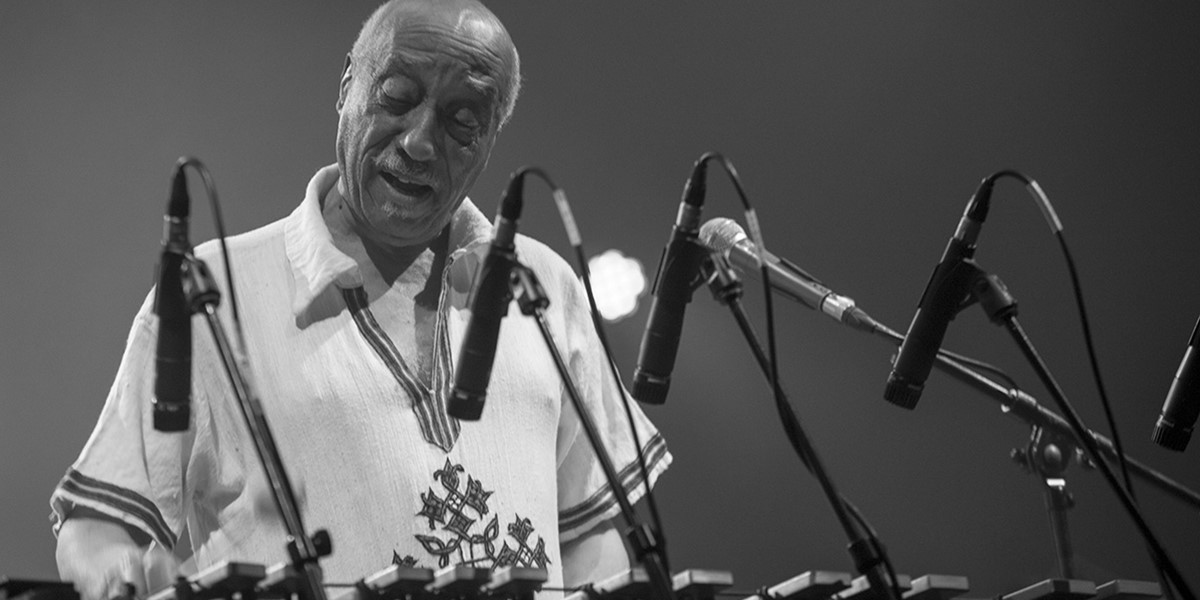Tuesday, January 22, 2019
Ethiopia In Brussels: Mulatu Astatke & Black Flower review
Ethio-Jazz pioneer Mulatu Astatke played a retrospective set from his golden era on the opening night of the Brussels Jazz Festival

Mulatu Astatke ©Olivier Lestoquoit

Register now to continue reading

Thanks for visiting the Songlines website, your guide to an extraordinary world of music and culture. Sign up for a free account now to enjoy:
- Free access to 2 subscriber-only articles and album reviews every month
- Unlimited access to our news and awards pages
- Our regular email newsletters


